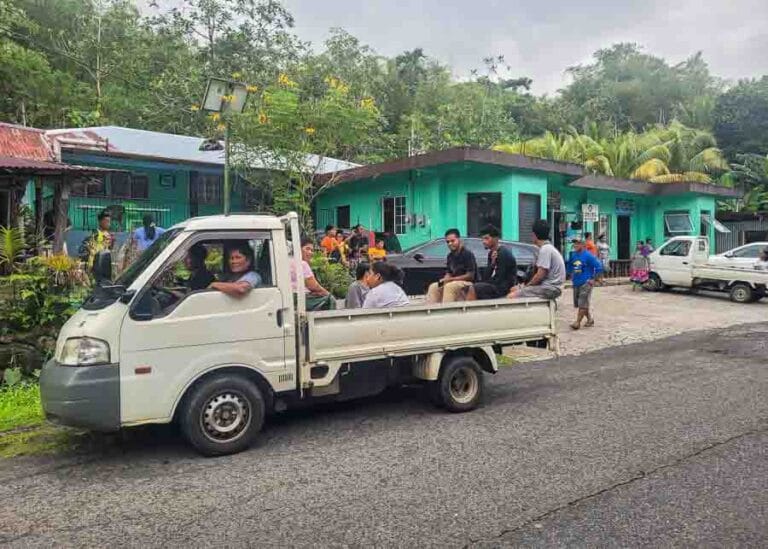Portfolio
Explore FinnOC's initiatives and download the full brochure for detailed project information
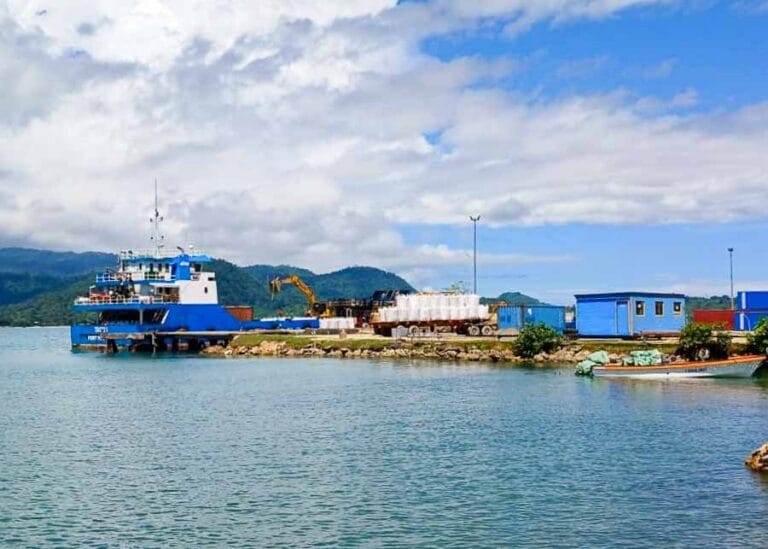
Feasibility Study and Detailed Engineering Design for Northern Corridor in PNG
Papua New Guinea
The Government of Papua New Guinea (PNG) is advancing infrastructure and connectivity to drive economic growth in the northern regions. FinnOC was tasked with conducting a feasibility study and detailed engineering design for the Northern Corridor (Momase International Highway), spanning 440 km from Wutung to Wewak, as well as upgrading the Vanimo and Wewak ports.
Funded by the Asian Development Bank (ADB) and engaged by the Department of Works and Highways (DoWH), the project includes road data collection, environmental and social assessments, and the development of new road designs, including a link between Vanimo and Aitape.
In addition, FinnOC is providing capacity-building activities to equip local authorities with the skills necessary to manage these critical projects for long-term success.
Detailed Design and Construction Supervision of City Street Rehabilitation
Mongolia
The Ulaanbaatar Sustainable Urban Transport Project aims to enhance urban mobility, reduce congestion, and improve road safety in Mongolia’s capital, while incorporating climate resilience measures. FinnOC is providing consultancy services for the engineering design and construction supervision of two key streets: Unur Micro-district (2.3 km) and Bayankhoshuu (5.6 km).
Our work focuses on optimizing road space and implementing Complete Streets and Safe Systems approaches to ensure safe travel. Key responsibilities include site investigations, design development, preparation of bidding documents, and construction oversight. Additionally, by addressing local challenges such as urban flooding and icing, this project sets the foundation for sustainable development and improved quality of life for Ulaanbaatar residents.
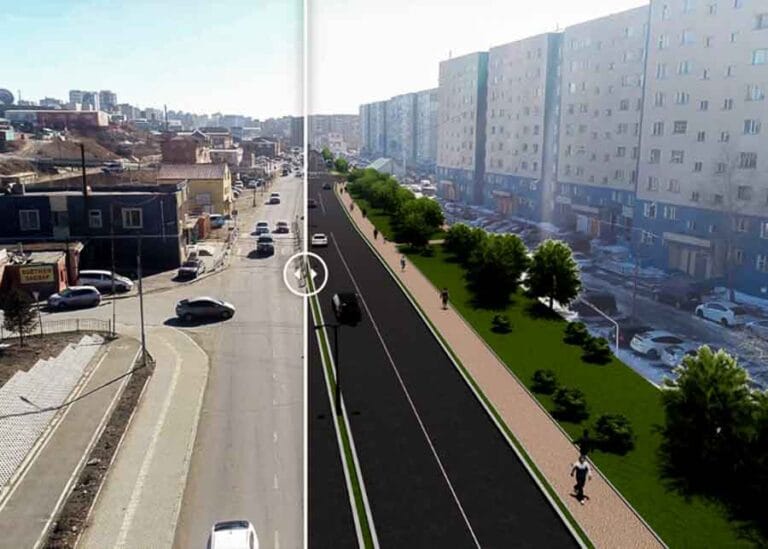

Development of Bridge Asset Management System (BAMS)
Papua New Guinea
The Government of Papua New Guinea (PNG) is strengthening its bridge infrastructure to enhance connectivity and resilience, particularly in response to climate change. FinnOC, in collaboration with the Department of Works and Highways (DoWH) and funded by the Asian Development Bank (ADB), was engaged to implement a Bridge Asset Management System (BAMS).
Initially tasked with inspecting 400 bridges across 22 provinces, FinnOC has exceeded expectations by inspecting 450 bridges to date. The BAMS integrates advanced data collection, real-time GPS monitoring, and a comprehensive maintenance system for preventive, corrective, and predictive upkeep. Additionally, FinnOC has rolled out capacity-building programs to train local engineers, enabling them to independently manage bridge assets and ensuring long-term sustainability for the country’s infrastructure.
Vulnerability Assessment and Climate-informed Road Asset Management of the Transport Network in São Tomé and Príncipe
São Tomé and Príncipe
FinnOC was engaged to enhance the climate resilience of São Tomé and Príncipe’s road network. The primary objective was to develop a strategy aimed at mitigating climate and disaster risks, ensuring the sustainability of the country’s infrastructure. FinnOC assessed the vulnerability of the road network to both current and future climate impacts, which resulted in the formulation of a national strategy and a prioritized work program for implementing resilience measures.
Furthermore, FinnOC established guidelines for conducting climate change vulnerability assessments and resilience audits of road designs. A significant achievement was the development of a Road Asset Management System that integrates climate data, enabling optimized planning and decision-making for future investments and maintenance efforts.
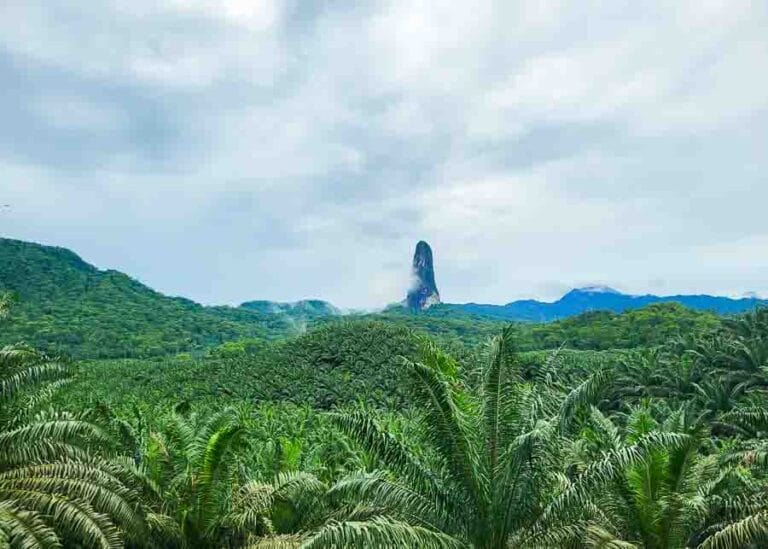
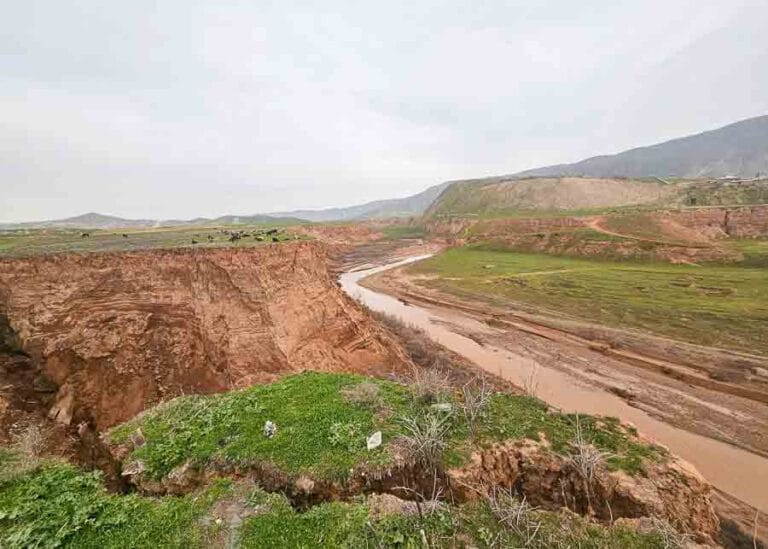
Climate Resilience Revision and Road Desin Update in Tajikistan
Tajikistan
Tajikistan is increasingly vulnerable to climate-related hazards such as floods, storms, and droughts, which are becoming more frequent and severe due to climate change.
To combat these challenges, this ADB-funded project focuses on implementing Green Road designs that enhance decarbonization, climate resilience, and disaster preparedness while also reducing pollution and protecting biodiversity. It includes a comprehensive climate risk assessment of the transport system, updating existing road designs and bidding documents to integrate climate-resilient measures.
Additionally, an institutional assessment aims to strengthen the necessary frameworks for long-term climate adaptation in the road sector.
Technical Assistance for Environmental and Social Safeguards in Liberia
Liberia
FinnOC has been engaged by Liberia’s Ministry of Public Works (MPW) through its Infrastructure Implementation Unit (IIU) to provide technical assistance for environmental and social safeguards (ESS) and gender-based violence (GBV) aspects across three road rehabilitation and maintenance projects co-financed by the International Development Association (IDA).
These projects include the Southeastern Corridor Road Asset Management Project (SECRAMP), the Liberia Road Asset Management Project (LIBRAMP), and the Rural Economic Transformation Project (RETRAP). FinnOC’s role involves supporting the IIU in implementing safeguards, developing mitigation measures, and enhancing local capacity to manage environmental and social impacts, ensuring compliance with World Bank standards while improving community well-being.
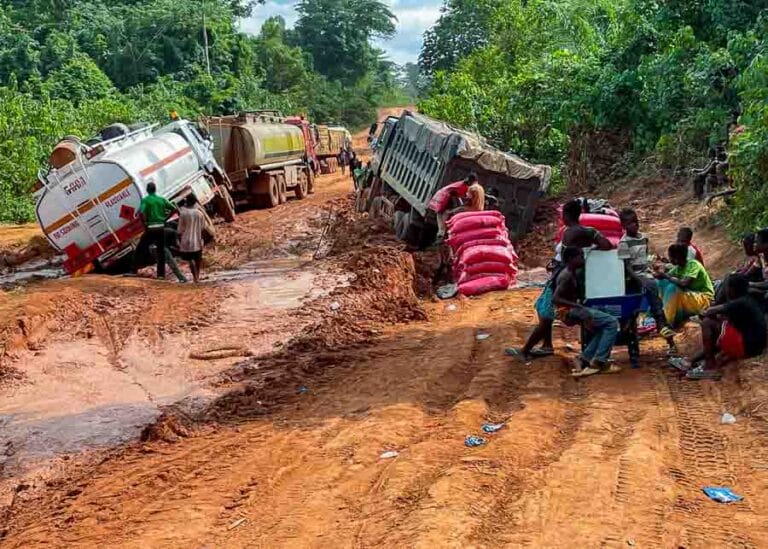
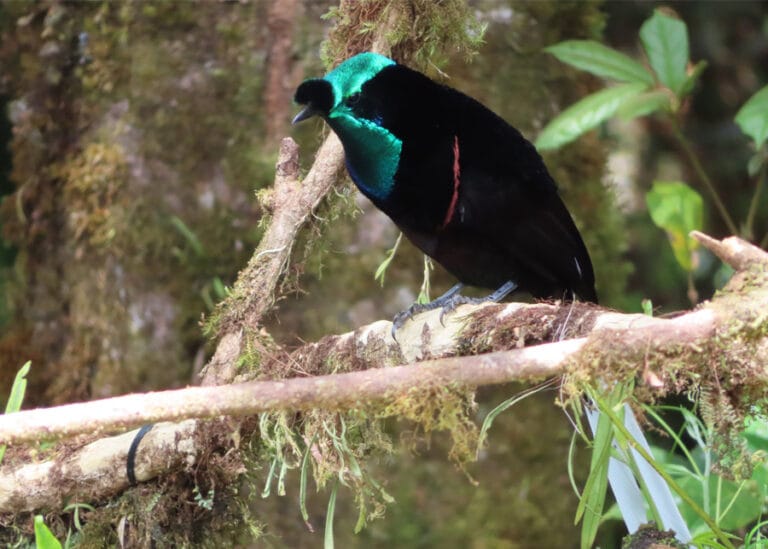
Improved Biodiversity and Land / Forest Ecosystem Conservation in PNG
Papua New Guinea
FinnOC contributed to a broader initiative focused on climate change, food security, conservation, and sustainable land use in Enga Province, Papua New Guinea. This UNDP-initiated program involved setting up operational management committees for Community Conservation Areas (CCAs), developing participatory land use plans, and conducting extensive environmental and community surveys.
The project introduced sustainable management practices across 10,000 hectares, including 2,500 hectares designated for reforestation and another 2,500 hectares for sustainable agriculture, supporting both environmental conservation and improved food security in the region.
Development of Integrated Landscape Management Systems in PNG
Papua New Guinea
FinnOC is supporting the UNDP’s initiative to develop Integrated Landscape Management Systems (ILMS) on New Britain Island, Papua New Guinea, to sustainably manage 2.7 million hectares of landscape. This project benefits over 66,000 individuals while promoting biodiversity conservation.
FinnOC’s role includes implementing a National Sustainable Land-Use Planning Policy, developing provincial management plans, conducting High Conservation Value (HCV) and High Carbon Stock (HCS) mapping, and facilitating multi-stakeholder engagements. These efforts ensure that local development aligns with both environmental conservation goals and sustainable growth for the community.
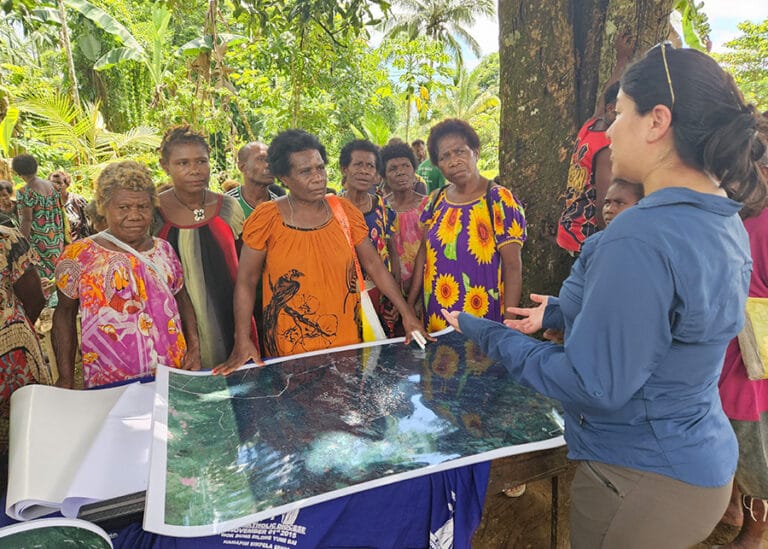
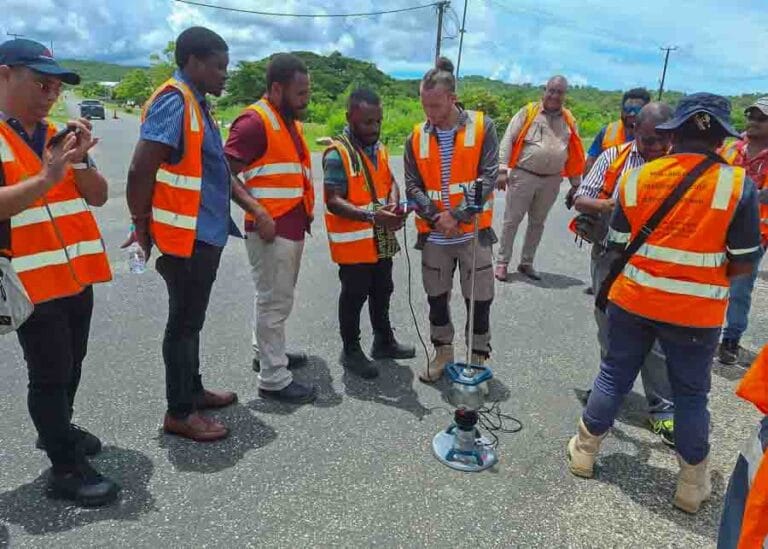
M&E Baseline Assessment for Highways and Long-Term Maintenance Contracts in PNG
Papua New Guinea
As part of the Papua New Guinea-Australia Transport Sector Support Program Phase Two (TSSP2), FinnOC conducted a Roads Baseline Study to gather reliable data on the impact of road infrastructure investments on economic growth and connectivity in Papua New Guinea (PNG). The study focused on six key highways under Australian-funded Long-Term Maintenance Contracts (LTMCs) and involved comprehensive assessments that included traffic counts, road and bridge condition data, socio-economic surveys, and environmental indicators.
Through extensive data collection, including 1,125 household surveys across 35 villages, the assessment aims to enhance the safety and reliability of the road network. Ultimately, this contributes to sustainable economic and social development in PNG by improving infrastructure that supports growth and connectivity.
Developing Capacity for Climate Resilient Road Transport Infrastructure in Rwanda
Rwanda
FinnOC is supporting the Rwanda Transport Development Agency (RTDA) in developing capacity to prepare the country’s road sector for the challenges that come with climate change. Given the country’s complex mountainous topography, low vegetative covers, intensive agriculture, and high population density, Rwanda is prone to land erosion and landslides, resulting in road damage and service interruptions.
Besides capacity building on various levels on how to integrate climate change adaptation and efficient response to natural disaster into all aspects of the transport life cycle, FinnOC is conducting a detailed country-wide GIS vulnerability mapping for the transport sector and provides recommendations for improvements.
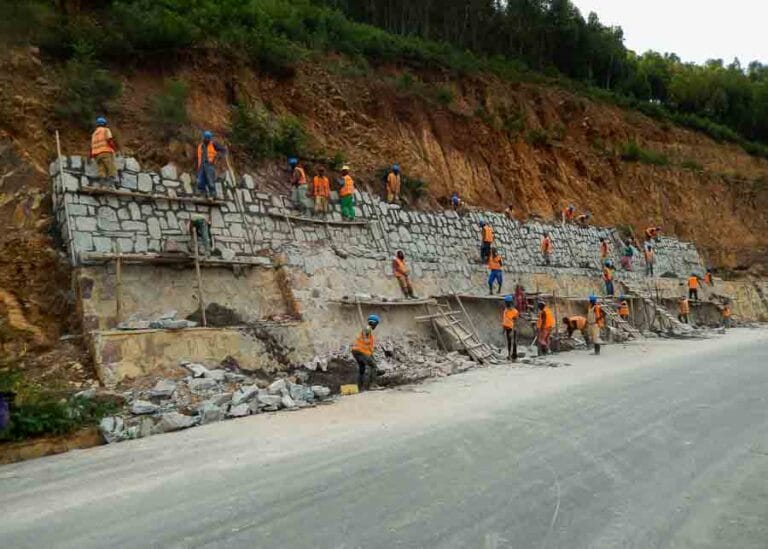
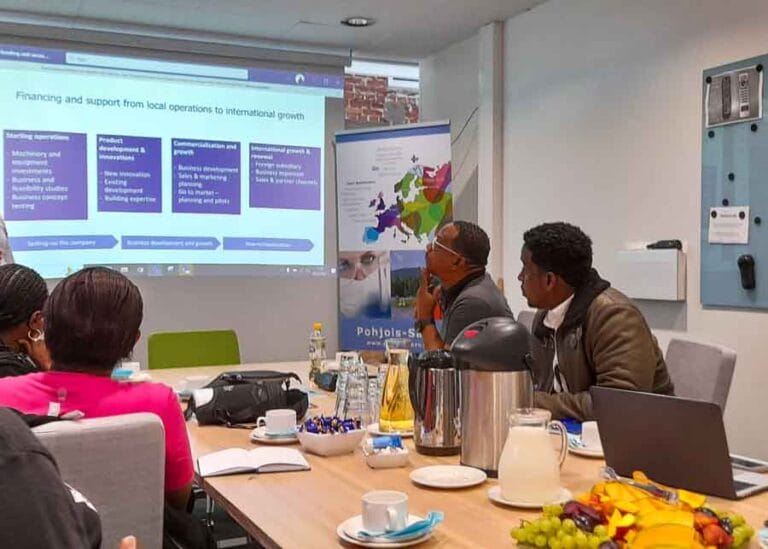
Road Rehabilitation and Improving Connectivity of Road Infrastructure - Capacity Building in Barbados
Barbados
To tackle the challenges facing Barbados’ road infrastructure and transport sector, the Ministry of Transport, Works, and Water Resources, supported by the Inter-American Development Bank (IDB), has engaged FinnOC to provide capacity-building consultancy services. This initiative aims to strengthen the Ministry’s institutional capacity by enhancing transport planning, asset management, maintenance methodologies, and road safety.
Key activities include developing computerized tools for resource allocation, training stakeholders, and establishing quality control standards. Additionally, the project will transform the Mechanical Workshop into a commercial cost center to encourage private contractor involvement in road maintenance. FinnOC will also assist in identifying donor co-funded programs and implementing necessary organizational changes, ensuring a modern and efficiently managed road network in Barbados.
Gender-Based Violence and Child Protection Prevention and Response Support Services in the Solomon Islands
Solomon Islands
Gender-Based Violence (GBV) and Violence Against Children (VAC) are critical issues in the Solomon Islands. FinnOC has been engaged to address these challenges in Malaita Province, Honiara, and Munda, regions affected by the Solomon Islands Roads and Aviation Project (SIRAP). The team conducted an in-depth mapping of available services for survivors, while also identifying high-risk areas and vulnerable groups.
Using these findings, FinnOC developed a comprehensive training and awareness strategy designed to educate communities, contractors, and workers about GBV/VAC risks and the support systems available. Additionally, the initiative aims to strengthen the capacity of local stakeholders to offer long-term, sustainable GBV/VAC services, ensuring continuity beyond the project’s completion.

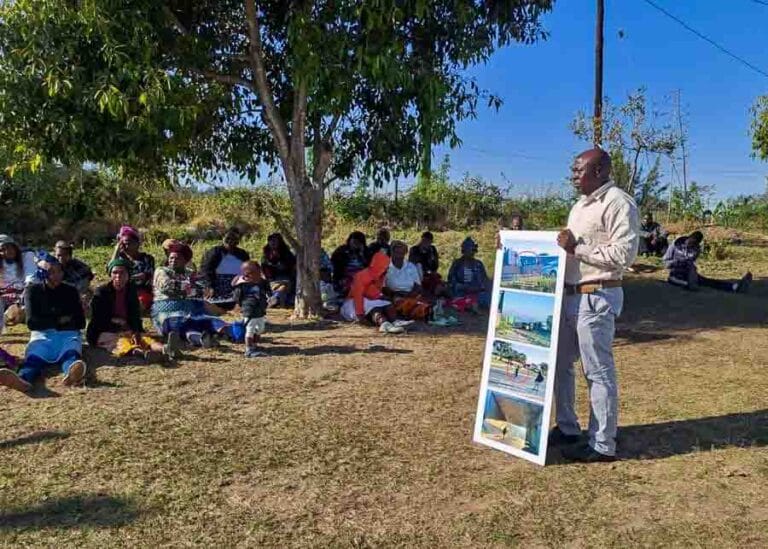
Sensitization of Communities on HIV/AIDS, STIs, Gender Empowerment, and Road Safety Awareness in Eswatini
Eswatini
As part of the Development of the Manzini Golf Course Interchange Project, the Government of the Kingdom of Eswatini has engaged FinnOC to conduct community sensitization campaigns addressing crucial topics such as HIV & AIDS, sexually transmitted infections (STIs), gender empowerment, and road safety. Funded by the African Development Bank (AfDB), this initiative seeks to reduce accident risks, promote safe road usage, and tackle public health issues among communities impacted by the interchange construction.
FinnOC has implemented two major sensitization campaigns: the first focused on road safety training for public transport operators, and the second involved community awareness activities, bolstered by a radio campaign designed to educate the public on safe practices. Through these efforts, FinnOC aims to foster a safer and healthier environment for the local population.
Beneficiary Survey in Micronesia
Federated States of Micronesia
The Government of the Federated States of Micronesia (FSM), with support from the World Bank, is advancing two significant road projects: the Prioritized Road Investment and Management Enhancement Project (PRIME) and the Strategic Climate-Oriented Road Enhancements Project (SCORE). As part of these initiatives, FinnOC has been engaged to carry out a comprehensive baseline survey across the four FSM states.
This survey focuses on key aspects, including socio-economic indicators, road usage patterns, perceptions of road safety, and the gender gap in driver licensing. The collected data will be instrumental in informing the design of the projects and measuring their impacts on community resilience, economic opportunities, and social outcomes. A particular emphasis will be placed on addressing the needs of women and individuals with disabilities, ensuring that the projects contribute to inclusive and equitable development across the FSM.
